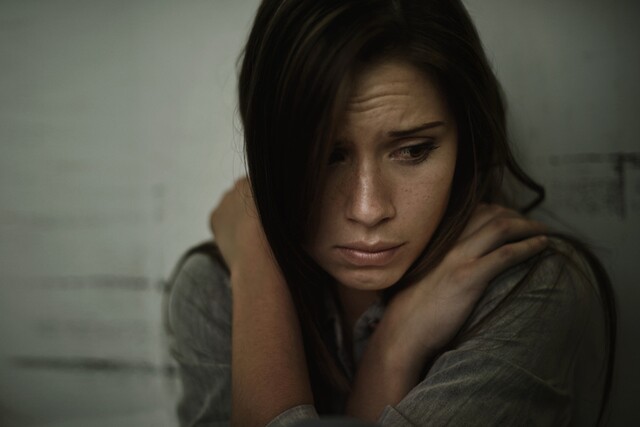For daily Gospel-based relationship insights join Jonathan’s Facebook group. To submit a question for Jonathan, click here.
Q: When I was younger I was molested by a member of my extended family. I’ve always felt that I was “damaged goods” after that. I remember a Sunday School lesson about chastity, where they compared losing your virginity to chewing gum; after it’s been chewed no one wants it. I remember being devastated by a Book of Mormon scripture that says women were robbed of their virtue through rape, as if it could be taken from them. How can I feel at peace again?
A: I’m so sorry for the pain you’ve suffered. No one deserves to be sexually assaulted. It is a selfish sin and a cruel crime. Then, to have that pain compounded by a thoughtless object lesson and our own scripture is heartbreaking.
Please allow me to start by reiterating what modern prophets and apostles have said on the subject.
“Victims of sexual abuse are not guilty of sin and do not need to repent. If you have been a victim of abuse, know that you are innocent and that God loves you. Talk to your parents or another trusted adult, and seek your bishop’s counsel immediately. They can support you spiritually and assist you in getting the protection and help you need. The process of healing may take time. Trust in the Savior. He will heal you and give you peace” (For The Strength of Youth, “Sexual Purity,” emphasis added).
That, to me, is some of the most reassuring, healing, and comforting doctrine there is. You are not responsible for this. You did not sin. No matter if your attacker tried to make you feel guilty, afraid, or even pleasure so you felt culpable, you didn’t choose this. You were the victim of manipulation, aggression, and evil. But you are not evil. You are not sinful. You are not broken, impure, or used up. Your assaulter is at fault, to blame, and accountable, not you.
The gum object lesson is, to be frank, moronic. It upsets me that it’s ever used. It seems it’s on its way out. I hope so. It’s not consistent with the gospel. Even in cases where one voluntarily breaks the law of chastity, there is hope, healing, and cleansing through the Atonement of Jesus Christ. How much more damaging, then, is the thoughtless analogy when uttered in the presence of someone who has endured abuse?
As for the Book of Mormon scripture you referred to, it is found in Moroni 9:9, in which Mormon describes depraved Nephites kidnapping Lamanite women and “depriving them of that which was most dear and precious above all things, which is chastity and virtue.” First of all, some have offered that perhaps that scripture does not mean what we think it means. Second of all, the Church found that passage so controversial that it removed it from Young Women’s manuals. Most importantly, Moroni explains on the title page that “if there are faults” in the Book of Mormon “they are the mistakes of men.” Do not dwell on this scripture, but instead focus on what Church leaders have taught.
Sister Elaine S. Dalton taught, “Some of you have been abused and are victims of the sinful acts of others. . . . Please know that because of the Savior’s Atonement, healing is possible. You are not to blame, for you have not sinned and repentance is not required” ("You Can Return," September 2009).
Elder Richard G. Scott added, “Know that the wicked choice of others cannot completely destroy your agency unless you permit it. Their acts may cause pain, anguish, even physical harm, but they cannot destroy your eternal possibilities in this brief but crucial life on earth” (“Healing the Tragic Scars of Abuse,” April 1992 General Conference).
I don’t know you, but my heart goes out in love to you. I’m heartbroken for your pain. Know that you are not alone. There are many others like you. Find support in their company (online or in-person groups are available). I’d like to point you towards the Church’s website offering counsel, doctrine, and support for persons who’ve been abused: abuse.lds.org. Please don’t suffer this alone. Let me or another therapist help you. Let your family and friends and church family help you. God bless you.

